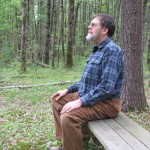There’s another of the periodic discussions going on online over the word “Pagan” to describe a religious movement. (These things tend to recur, like malarial fevers, every so often, despite the best efforts to settle them once and for all.)
As has happened before, the point has been made that Paganism, as a religious movement, is hard to define because there are so many things that can’t be said categorically to define us all. Some of us aren’t polytheist (or theistic at all); others aren’t earth-centered. Some revere ancestors and attempt to follow their ways, while others don’t. And so on.
As is probably clear, I find attempts to define the word “Pagan”–or to get us to abandon the word–frustrating. Still, just because I keep having the same conversation again and again doesn’t mean it isn’t a good conversation to have. And Scott Reimers, at Patheos, has a point when he says that, to the extent that Pagan is a label that defines us as what we are not (Christian, primarily) it is a label that dooms us to live in a certain amount of tension and distrust with our culture. To the extent that this is true of us, it may indeed distort who are, and who we become. I do appreciate Reimers’ point that we need to focus on the inclusivity of our movement, rather than on a label that may simply hold us in tension with others.
But I like better Jeff Lilly’s point, over at Druid Journal, that, while Paganism is a somewhat slippery and imprecise term, that doesn’t mean that it is meaningless, or that it’s only connotation is a negative one, as Reimers suggests.
In fact, Jeff sees the very process of reclaiming the word “Pagan” to describe us as part of a process of creating a community that has its own cohesion, with or without being easy to define. And more importantly, like many words, the word “Pagan” has a “forest of meaning”–a rich, if imprecise, cluster of living and related ideas that are growing in relationship to each other, and to the community that claims that word. “A word is a knot, a tangle of prototypes in the forest of meaning,” Jeff observes, and I agree.
He continues, “In fact, the desire to hammer down the meanings of words, to draw sharp lines around concepts and say for sure who belongs in the club and who doesn’t, is antithetical to the Pagan aesthetic.”
I think that he is right. Deep within the core of meanings of Paganism, as I have lived it, is an organicity that evolves, shifts, and yet has a balance of its own–like an actual forest. It is not static, not amenable to sharp borders and definitions, because its heart is dynamic.
I responded to Jeff’s post in this way:
I, personally, need the word “Pagan.” Its meaning may be a cluster of loosely related ideas, but that’s exactly why I need it–because my own religious identity is complex enough that less complex words distort it.
Should I say that I am Wiccan, because I have trained in two Wiccan traditions? While my Wiccan roots matter a lot to me, so do the bits and pieces of idiosyncratic ritual and lore I’ve accreted over the years–stray bits of shamanic practice, Hellenic traditions, rituals created by people I love, and insights gleaned directly from gods and spirits I’ve encountered in trance. None of that is recognizably Wiccan to an outsider, but it’s as important to me as my starting point.
Should I describe myself as a Druid, because my current theological and philosophical leanings are in that direction? But I’ve never formally trained as a Druid, and I am, frankly, unwilling (at my age, but more importantly, at my level of experience) to go back to the beginning and train again in a new tradition, just to say I belong to it.
Should I simply call myself a Quaker, and be done with it? But I’m a Quaker who celebrates each full moon and the turning tide of every season, who leaves offerings to her ancestors and to the spirits of the local woods. However many meetings for business I attend, committees I serve on, or Quaker journals I read, is it enough to call a follower of Herne and the Lady of the Spindle “a Quaker”?
I need the word “Pagan” the way my friend R., who married a man who later transitioned to life as a woman, needs the word “queer.” R. isn’t lesbian; R. isn’t trans. But her life isn’t summed up well by describing her a cis-female and straight, either.
Paths are sometimes convoluted, when you bother to explore them and follow where they lead, instead of sit down comfortably beside the roadsigns that mark them.
The older I get, the more Pagan I become. What other word is wide enough to hold me?
var fctb_tool=null; function FCTB_Init_ee82037a66c8114a9df31ce8e2df9131(t) { fctb_tool=t; start(fctb_tool); } FCTB_Init_ee82037a66c8114a9df31ce8e2df9131(document[‘FCTB_Init_082b6ec3bcab404e9e5c609e9c1fda54’]); delete document[‘FCTB_Init_082b6ec3bcab404e9e5c609e9c1fda54’] var fctb_tool=null; function FCTB_Init_43e68ad3eda8fb4a8ee57de1f3bd580c(t) { fctb_tool=t; start(fctb_tool); } FCTB_Init_43e68ad3eda8fb4a8ee57de1f3bd580c(document[‘FCTB_Init_1993a2239c27284ca15ec2b1fd017122’]); delete document[‘FCTB_Init_1993a2239c27284ca15ec2b1fd017122’]
var fctb_tool=null; function FCTB_Init_8254b22c6235734688ec1c19dd1a99fd(t) { fctb_tool=t; start(fctb_tool); } FCTB_Init_8254b22c6235734688ec1c19dd1a99fd(document[‘FCTB_Init_ef184a795463494d93d17e4525acb896’]); delete document[‘FCTB_Init_ef184a795463494d93d17e4525acb896’] var fctb_tool=null; function FCTB_Init_29869bb90804f44aa8a59202858a4744(t) { fctb_tool=t; start(fctb_tool); } FCTB_Init_29869bb90804f44aa8a59202858a4744(document[‘FCTB_Init_d5a7d058c4b4a54896d556062fa605b5’]); delete document[‘FCTB_Init_d5a7d058c4b4a54896d556062fa605b5’]
var fctb_tool=null; function FCTB_Init_c5257a27466eed4f8891be0405df3786(t) { fctb_tool=t; start(fctb_tool); } FCTB_Init_c5257a27466eed4f8891be0405df3786(document[‘FCTB_Init_15686a1ed832b645b8b2e1ca879c30e3’]); delete document[‘FCTB_Init_15686a1ed832b645b8b2e1ca879c30e3’] var fctb_tool=null; function FCTB_Init_f31657fce806304ea805706c7ca76569(t) { fctb_tool=t; start(fctb_tool); } FCTB_Init_f31657fce806304ea805706c7ca76569(document[‘FCTB_Init_0153e608ef3e8243a417c48c1f0e8583’]); delete document[‘FCTB_Init_0153e608ef3e8243a417c48c1f0e8583’]















